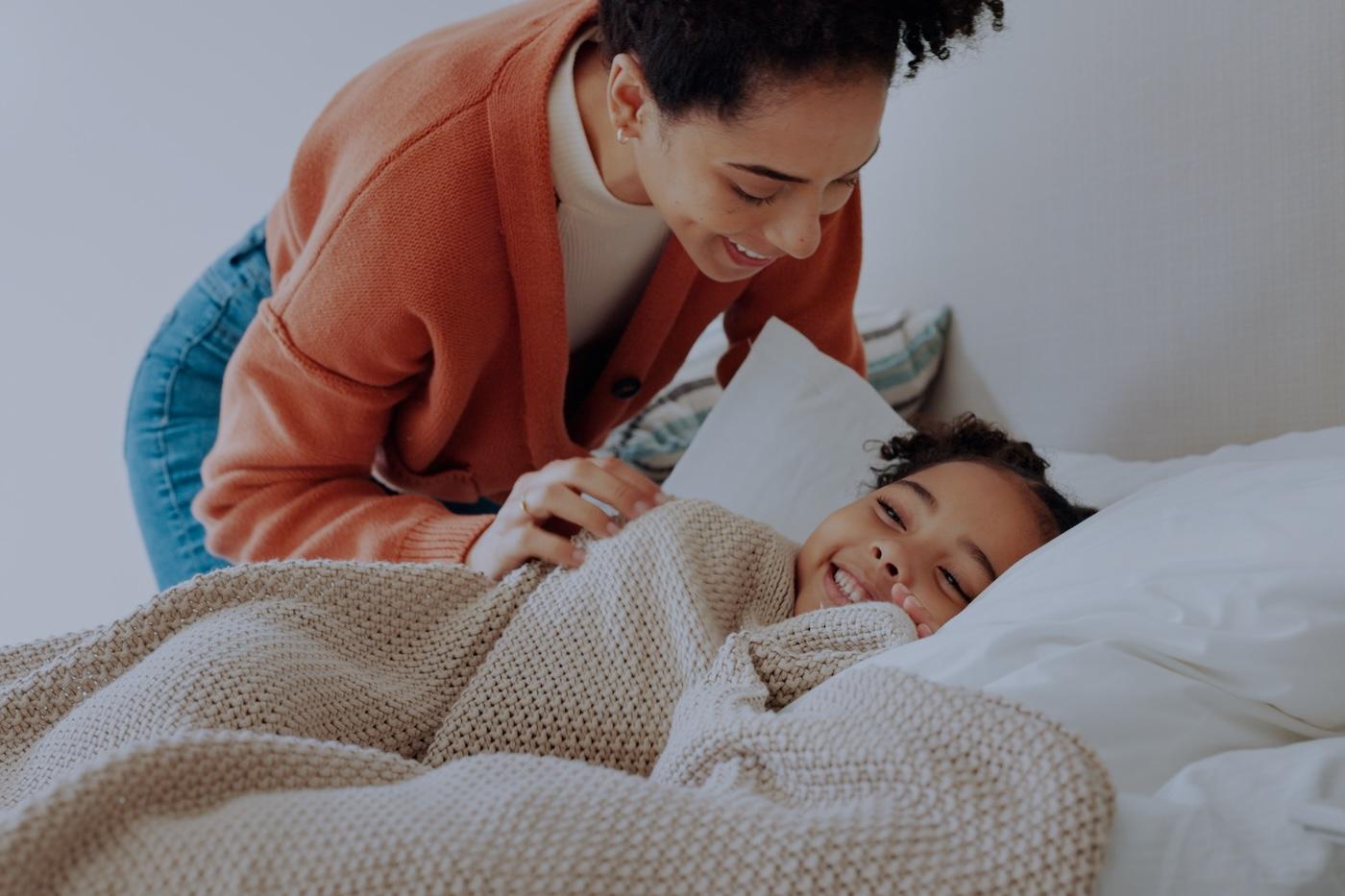TODDLER
How to Find the Right Bedtime for Your Toddler
Clues to whether your tot is going down to sleep too late—or too early!

Written by
Dr. Harvey Karp

Sometimes when we’re trying to understand why out toddler is fighting bedtime, we overlook the obvious: We picked the wrong time! But with flexibility being the name of the game when parenting a toddler, you may wonder if they should have a “set” bedtime at all.
Should toddlers have a bedtime?
Toddlers (ages 1 to 5) sleep about 12 to 14 hours a day (including naps), but without a solid sleep plan, half of them will wake up in the middle of the night. That’s why having a toddler bedtime not only reduces tuck-in troubles, it can also help the whole family catch more ZZZs. Not to mention, routines are incredibly comforting to toddlers. So pick a bedtime that works for your toddler, and try to stick to it!
What time should a toddler go to bed?
For most tots, lights-out is around 9pm (give or take 30 minutes), but pushing it later—or trying to force it earlier—may lead to more middle-of-the- night waking! I’ve found the sweet spot tends to be around 8 to 8:30pm, but every child is different.
When is a toddler bedtime too early?
For most toddlers, it’s too much to ask for them to snooze straight through from 7pm till 7am. It’s just more sleep than they need.
Signs that your bedtime may be too early include:
- Your tot fights falling asleep for 30 to 60 minutes.
- Your toddler shows no sign of fatigue at bedtime.
- Your tyke wakes up in the middle of the night or very early the next day, refreshed and ready to go.
When is a toddler bedtime too late?
Overtired children often get more hyper. Rather than winding down, they get wound up! This leads to bedtime resistance, and the memory of these struggles can reverberate throughout the nighttime and actually wake your tot when they enter one of their light stages of sleep in the middle of the night.
Here are some clues that your toddler’s bedtime is too late:
- Your child fights falling asleep for 30 to 60 minutes.
- They have trouble waking in the morning; they're extra cranky and moody during the day; and they fall asleep during car or stroller rides.
- Your toddler shows clear signs of fatigue at bedtime (rubbing eyes, blinking, yawning, getting silly and wild, acting cranky, having accidents).
How to Find the Right Bedtime for your Toddler
If you think bedtime is too early, try pushing your toddler's bedtime routine 15 minutes later over two to three nights. If you think bedtime is too late, start their routine 15 minutes earlier every two to three nights. Either approach should work within a week or two.
Is there a sleep regression at 3 years old?
There are a number of things that disturb a toddler’s sleep. Toddlers love running, dancing, and exploring—and they can be pretty rigid in their reactions to your requests—all of which can add up to rebellion at bedtime! This is why establishing a routine is highly important. Another contributing factor are sleep disturbances like nightmares, confusional arousals, and night terrors. (Read more about toddler sleep regressions!)
For Extra Toddler Bedtime Help...
If you’re still having difficulty with your toddler’s sleep check out SNOObie! SNOObie plays doctor-designed white noise to help boost your toddler's sleep. Plus, SNOObie features a customizable nightlight to banish toddler fears and is an OK-to-wake sleep trainer that helps keeps tots in bed longer. Learn more about setting routines with SNOObie.
More Toddler Sleep Tips:
- Ease Sleepytime Struggles With a Bedtime Routine Chart
- Why Toddlers Refuse Sleep (and How to Help!)
- How to Sleep Train a Toddler
- Why Your Toddler Needs an OK-to-Wake Clock
- What to Do If Your Toddler Won't Nap
Disclaimer: The information on our site is NOT medical advice for any specific person or condition. It is only meant as general information. If you have any medical questions and concerns about your child or yourself, please contact your health provider.
SHARE THIS ARTICLE
MOST LOVED
Sleepytime Sidekicks












